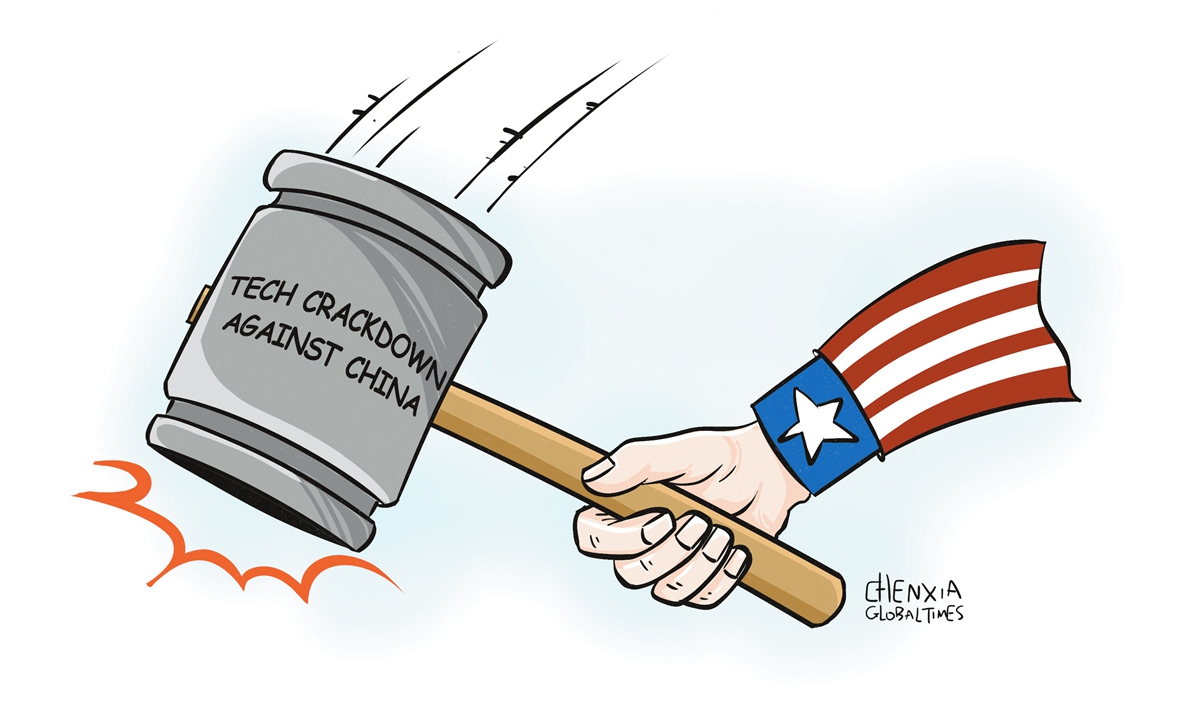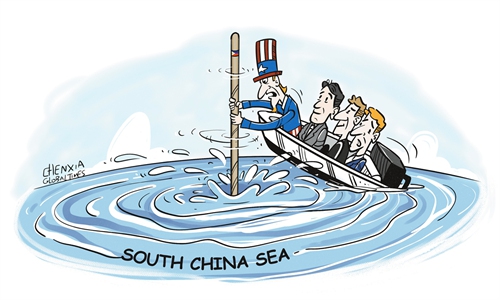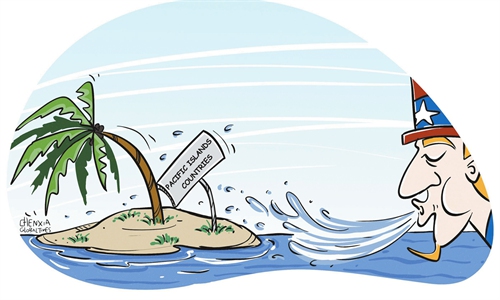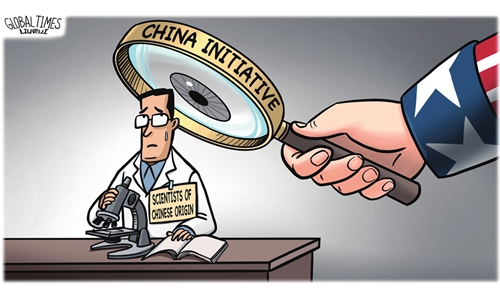Death of Chinese-American scientist a wake-up call for US’ extreme science policies

Illustration: Chen Xia/GT
As Washington increases its crackdown on China's science and technology, its ripple effect has become tragic. For many Chinese researchers, the dream of developing their careers in the US, a country supposed to be a promising land for free, open, and inclusive scientific research, is becoming increasingly elusive. But for Chinese-American neuroscientist Jane Y. Wu, a prominent researcher at an Illinois university, it is even worse - it cost her life.
The story of Wu, who took her life on July 10, was recently brought under the spotlight again by a South China Morning Post piece. Even though no official investigation results into the cause of Wu's suicide have been announced yet, the article argued that Wu, before her death, was under tremendous pressure, which may have been exacerbated by the US investigation into "researchers suspected of having undisclosed ties to Beijing."
Wu's death is a great loss to the scientific research community. Yet, what it epitomizes more is a tragedy under the US' crooked tech suppression against China and anyone or anything related to that country.
Many believe that the China-born neuroscientist is a victim of Washington's witch hunt against China-related scientists in the US. Wu's death outlines an increasingly difficult situation for those scientific and technological professionals to thrive - or even survive, to say the worst - in a country that has nurtured countless scientific authorities.
Data show that over the past six years, more than 250 researchers in the US, mostly of Asian descent, have been accused of failing to disclose their work in China that overlaps with their research funded by the US National Institutes of Health or breaking other rules and were thus put under investigation. This led to only two indictments and three convictions, showing that most of the allegations are in fact the product of groundless, reckless fabrication.
However, 112 scientists lost their jobs as a result. In general, many of those victims had their careers shattered. Some researchers have eventually regained their reputations, but have lost the prime of their career. Some were not investigated, but have been living in constant fear. To this day, the chilling effect of the witch hunt against China-related scientists in the US can still be felt.
The most notorious policy under this discriminatory witch hunt with clear targets is the "China Initiative" launched by the Donald Trump administration. It is regarded as a resurrection of McCarthyism, subjecting many Chinese researchers to unfair treatment because of their background. The "China Initiative" has fostered racial discrimination in US society and spread fear among minorities, especially the Chinese-American community. It was called off by the Joe Biden administration in 2022, but signs show that US authorities now still tacitly endorse it, or at least use a similar approach.
Wu's death should serve as a wake-up call for the US, which is constantly seeking more extreme science and technology policies against China. Washington now no longer views science and technology as a purely technical issue, but as one that can be politicized and weaponized to suppress China. The US should not go down such a wrong path, but unfortunately, judging from the growing hostility toward China among some US policymakers, it is very difficult to get the US to correct its wrong view of science and technology regarding China.
This has created numerous obstacles to China-US science and technology cooperation, another hot topic in recent days. There is no doubt that the US has given up the pursuit of a closer science and technology cooperation with China, but instead, is "digging holes and laying landmines" to wreak havoc on such cooperation. The fact that science and technology have become a tool of Washington's frenzied suppression against Beijing is a tragedy not only of the US' China policy, but also of the development of the US scientific research community.



